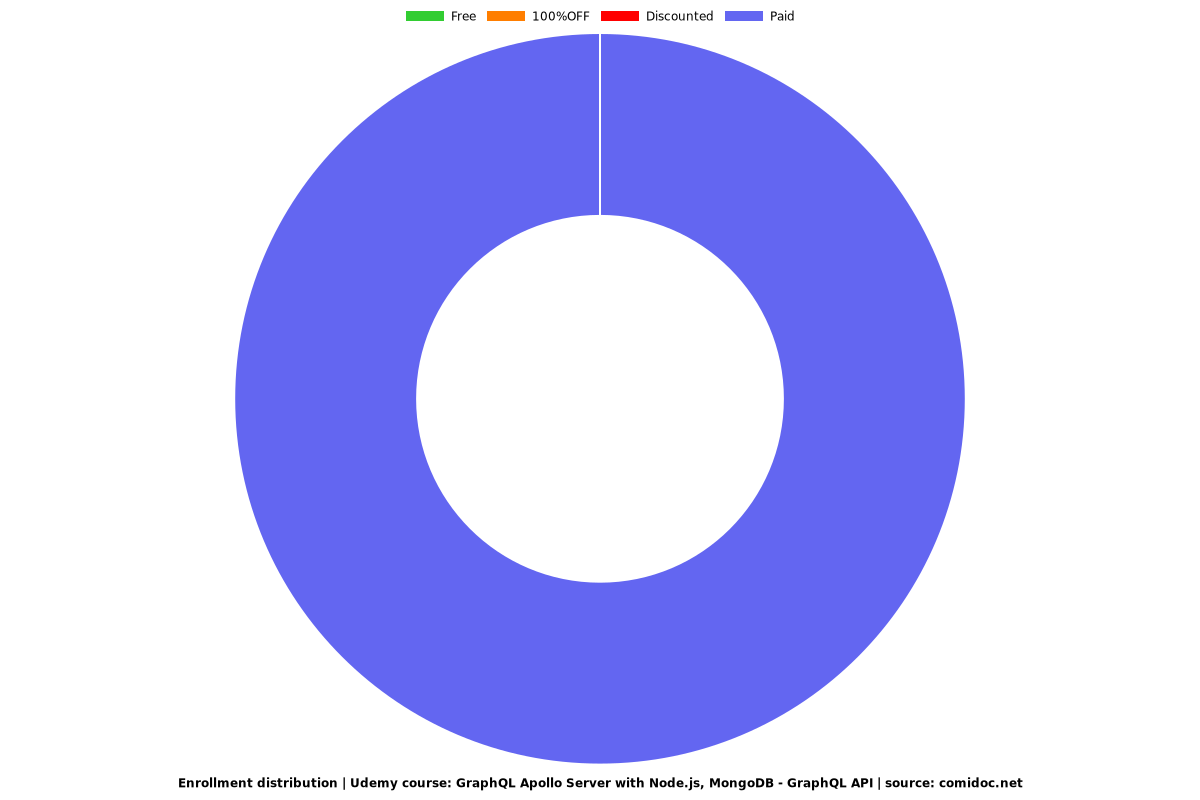GraphQL Apollo Server with Node.js, MongoDB - GraphQL API
GraphQL API Server with Apollo, Node.js, MongoDB. Jwt Authentication, Cursor Pagination, DB Query Batching & Caching
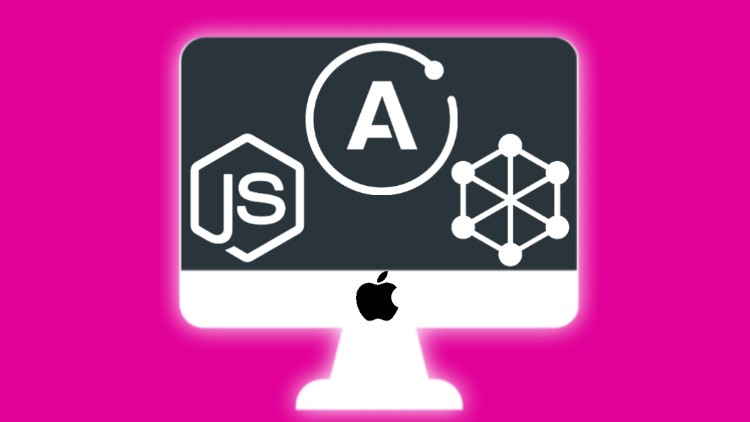
What you will learn
Learn GraphQL Fundamentals such as Query, Mutation and Subscription
Implement JWT Authentication in GraphQL Apollo Server
Build Scalable API with Faster, Efficient Pagination Strategies such as Cursor Based Pagination
Build Performant GraphQL API by batching and caching database request with Data Loaders
Secure GraphQL API with Resolver Middleware and Authentication context
Handle deep nested GraphQL Queries efficiently
Why take this course?
Build GraphQL API with Apollo Server in Node.js, Express, and MongoDB Database.
ϟ What is GraphQL?
GraphQL is a query language for APIs and a runtime for fulfilling those queries with your existing data. GraphQL provides a complete and understandable description of the data in your API, gives clients the power to ask for exactly what they need, and nothing more, makes it easier to evolve APIs over time, and enables powerful developer tools.
♦ Ask for what you need, get exactly that.
♦ Get many resources in a single request.
♦ Describe what’s possible with a type system.
♦ Move faster with powerful developer tools.
♦ Evolve your API without versions
♦ Bring your own data and code
ϟ Who is using GraphQL?
♦ Facebook, Github, Pinterest, Shopify and more
ϟ What is Apollo Server?
Apollo Server is the best way to quickly build a production-ready, self-documenting API for GraphQL clients, using data from any source.
It's open-source and works great as a stand-alone server, an add-on to an existing Node.js HTTP server, or in "serverless" environments.
Apollo Server implements a spec-compliant GraphQL server which can be queried from any GraphQL client, including Apollo Client, enabling:
♦ An easy start, so front-end and back-end developers can start fetching data quickly.
♦ Incremental adoption, allowing advanced features to be added when they're needed.
♦ Universal compatibility with any data source, any build tool, and any GraphQL client.
♦ Production readiness, and what you build in development works great in production.
You will learn the following things in the course:
♦ Build GraphQL API with Apollo Server in Node.js, Express, and MongoDB.
♦ Add JWT Authentication in Apollo GraphQL API.
♦ Implement Faster pagination with Cursor Based Pagination Strategy. We will also implement offset limit pagination and will compare them.
♦ Add Data Loaders to return data faster from the server with batching and caching your database query.
♦ Feel Confident with GraphQL Concepts such as Query, Mutation, and Subscription.
♦ Best practices in GraphQL and Build Scalable API with proper schema design.
♦ Efficient and scalable GraphQL Schema design strategies.
♦ Learn to handle deep nested GraphQL Query.
♦ Learn to efficiently use the GraphQL Playground tool.
♦ Get a good understanding of schemas, "types" in GraphQL.
♦ Learn to set up real-time communication between client and server with the subscription.
♦ Learn to manage the authentication context in GraphQL.
♦ Secure/Protect various query and mutations with Graphql Resolver middleware and auth state from context.
♦ Define relationships between various object types.
♦ and much more.
Screenshots
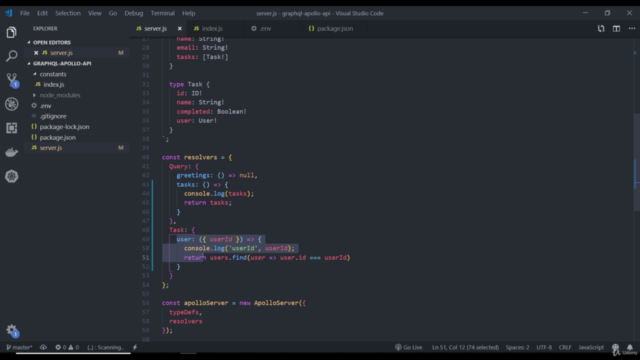
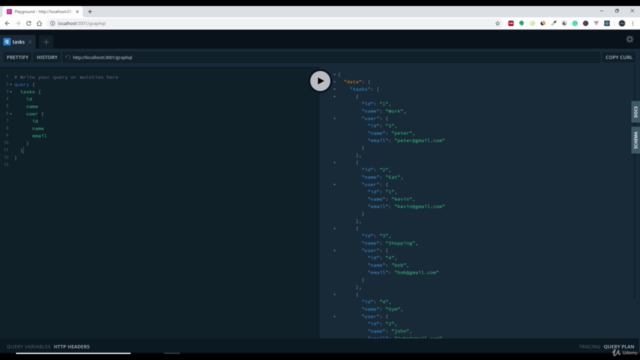
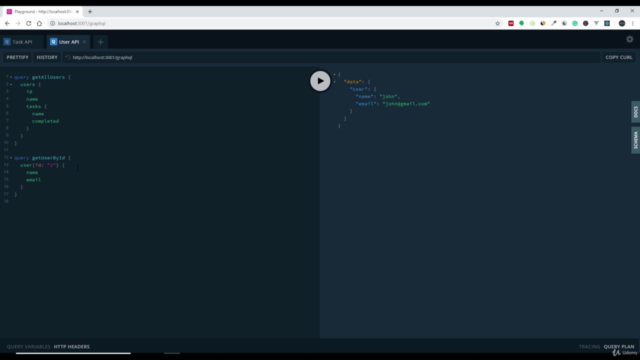
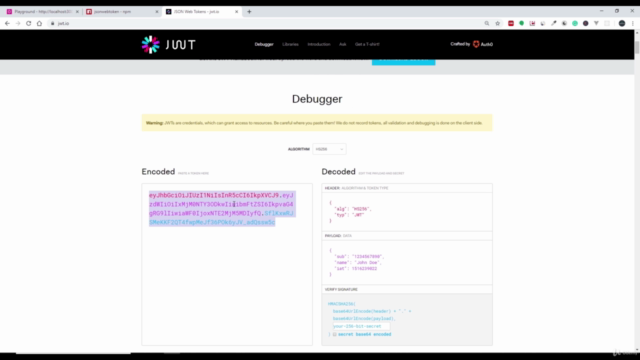
Our review
Charts
Price
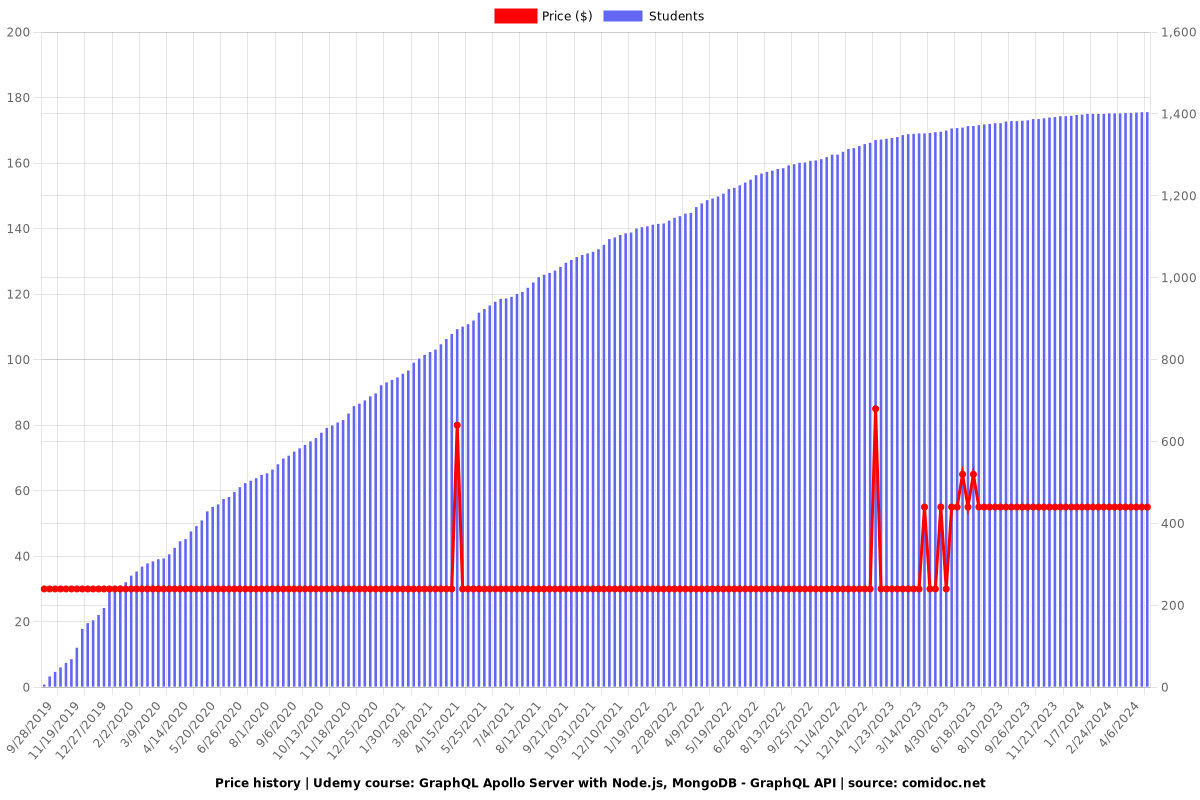
Rating
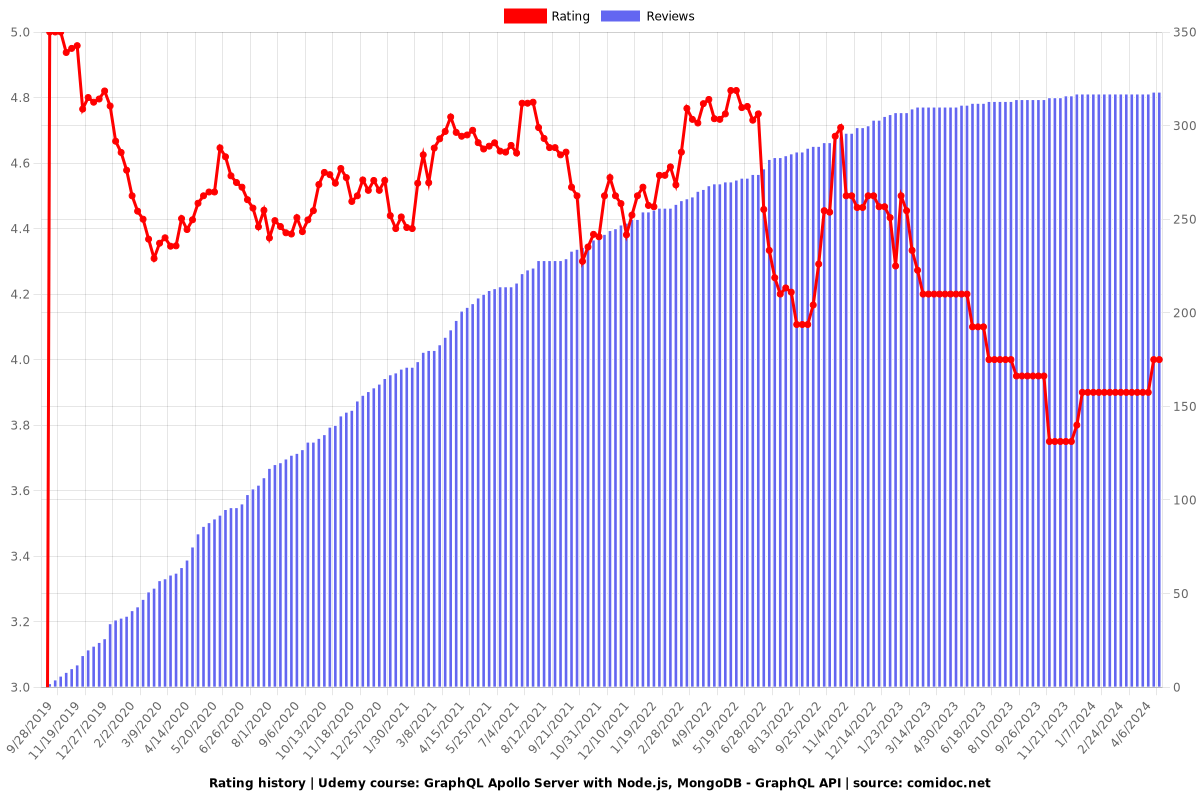
Enrollment distribution
